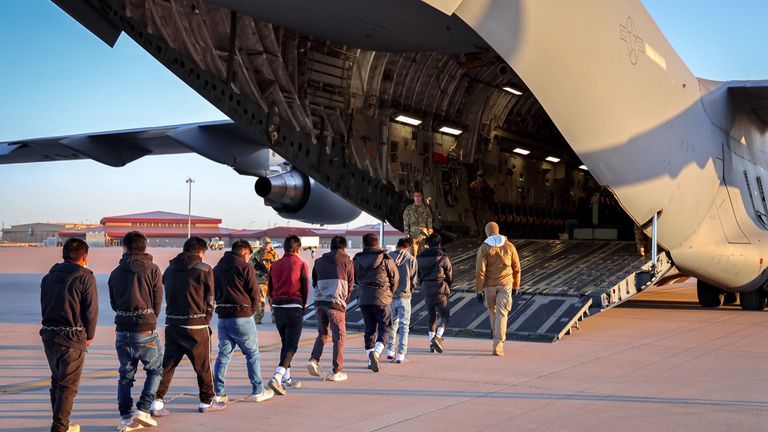The United States has reached bilateral deportation agreements with Uganda and Honduras as part of its intensified immigration enforcement strategy.
Under the reported arrangement, Uganda has agreed to accept an unspecified number of asylum seekers from Africa and Asia who were detained at the U.S.–Mexico border but either failed to secure asylum or resisted return to their countries of origin. Meanwhile, Honduras will receive several hundred deportees from Spanish-speaking nations.
Uganda’s foreign ministry confirmed that it is prepared to take in deportees but pointed out limits to the arrangement. According to Permanent Secretary Bagiire Vincent Waiswa, Uganda will not admit individuals with criminal records or unaccompanied minors. He also noted that Uganda prefers African nationals to be prioritized under the agreement. The ministry declined to disclose whether financial or other incentives were offered, or how many individuals Uganda would ultimately receive.
The agreements, according to internal documents obtained by CBS News and shared by the BBC, reflect the Trump administration’s push to expand partnerships with foreign governments to facilitate deportations, including cases involving non-citizens of those receiving countries. In recent months, the U.S. has carried out a series of controversial removals:
- In July, five migrants from Vietnam, Jamaica, Laos, Yemen, and Cuba were deported to Eswatini, where they are currently imprisoned under high security. The deportations face a legal challenge from local NGOs, with a high court hearing scheduled this week.
- Also in July, eight men were deported to South Sudan after being detained in a shipping container in Djibouti for several weeks.
- More than 250 Venezuelans were sent to Venezuela after initially being transferred to a prison in El Salvador without due process.
Separately, Rwanda has confirmed that it will accept 250 deportees from the U.S., offering job training, health care, and housing to assist with resettlement.
Despite the reports, a Ugandan government official later denied any finalized agreement with the U.S., citing inadequate infrastructure to accommodate deportees. Analysts suggest Uganda’s cooperation may reflect broader geopolitical strategy. Godwin Toko, deputy executive director of Agora, a Ugandan think tank, argued that Kampala often leverages such deals to maintain favorable ties with Washington.
Uganda has a history of participating in third-country deportation arrangements. Between 2015 and 2018, Israel transferred more than 1,700 Sudanese and Eritrean asylum seekers to Uganda. Today, the East African nation hosts nearly two million refugees, primarily from neighboring countries such as the Democratic Republic of Congo, South Sudan, and Eritrea.
However, human rights advocates warn that Uganda’s record on protecting politically vulnerable migrants is mixed. Critics fear that dissidents deported there could face further persecution if handed over to governments allied with Kampala.
The legal and diplomatic implications of the reported agreements raise questions about due process, international refugee protections, and the expanding reach of U.S. immigration enforcement beyond its borders.

